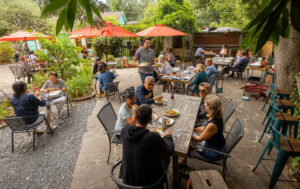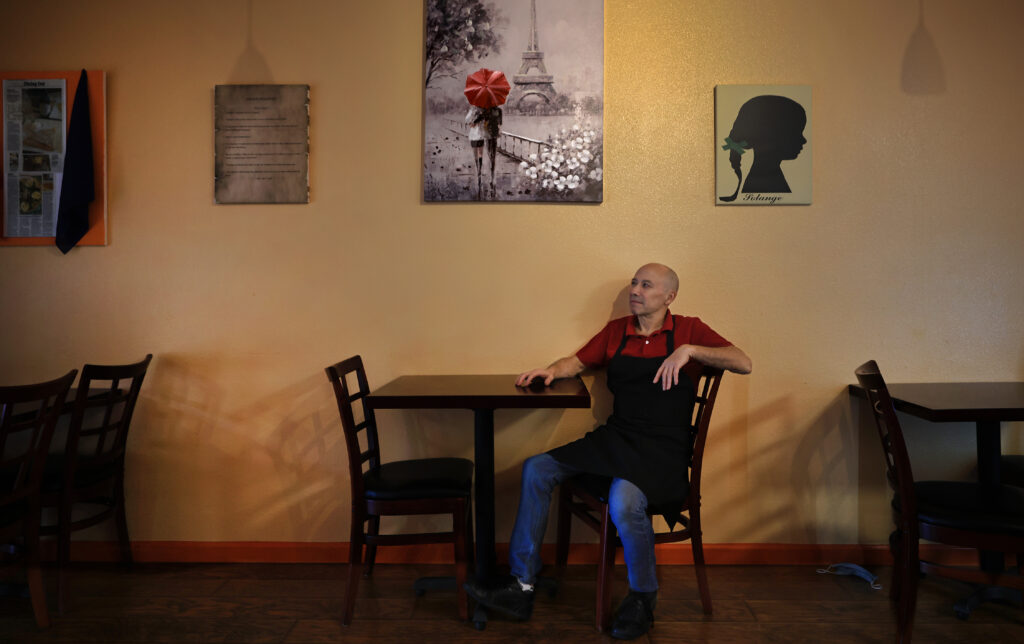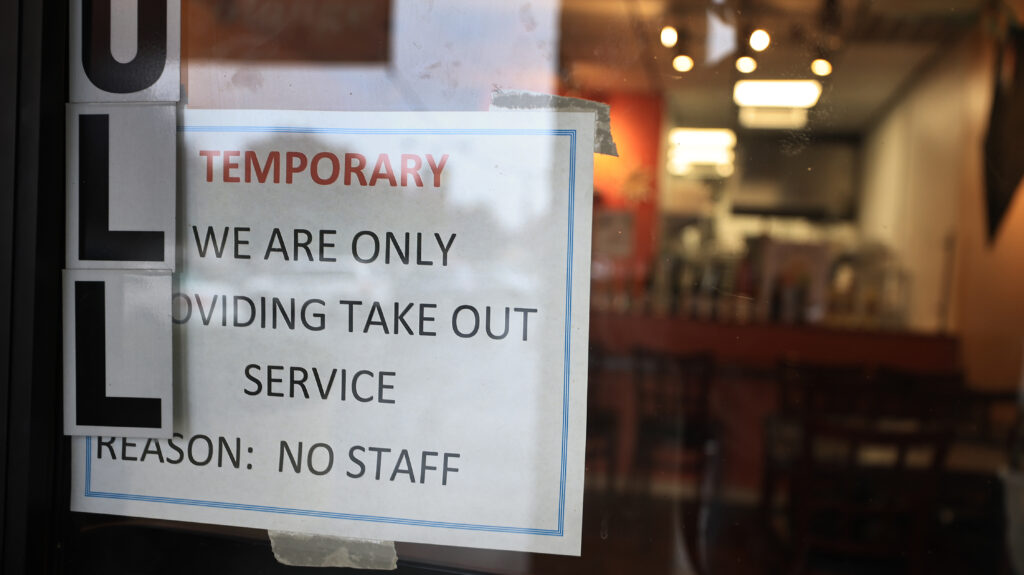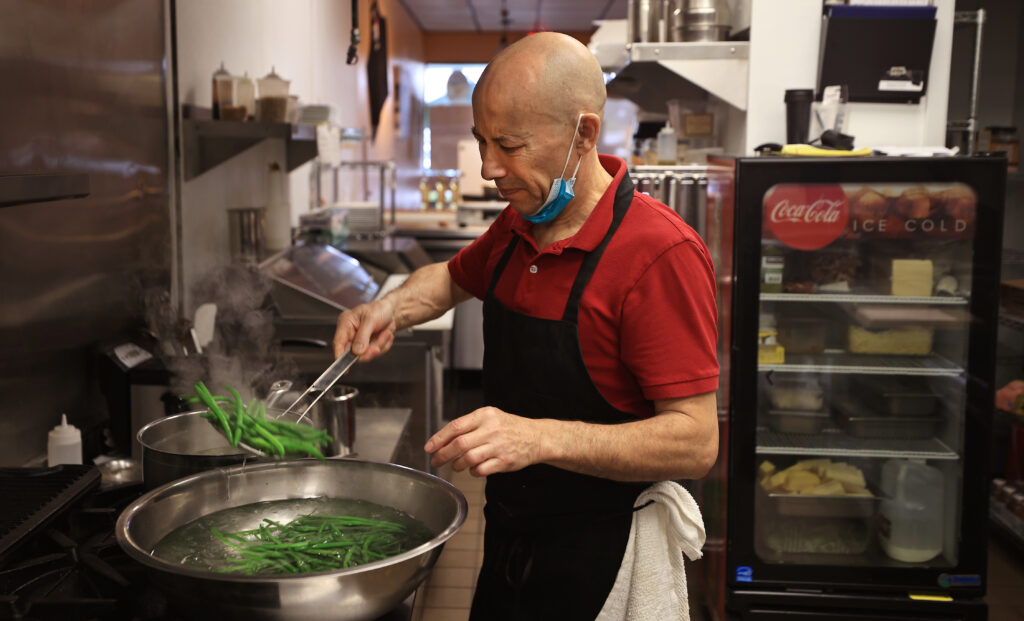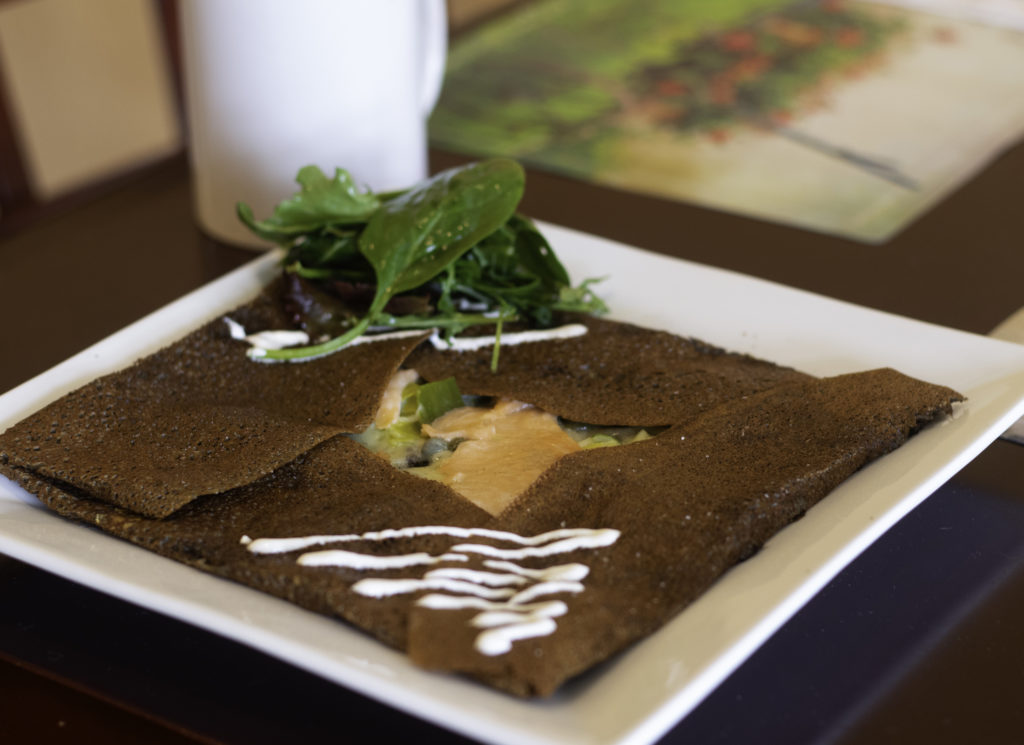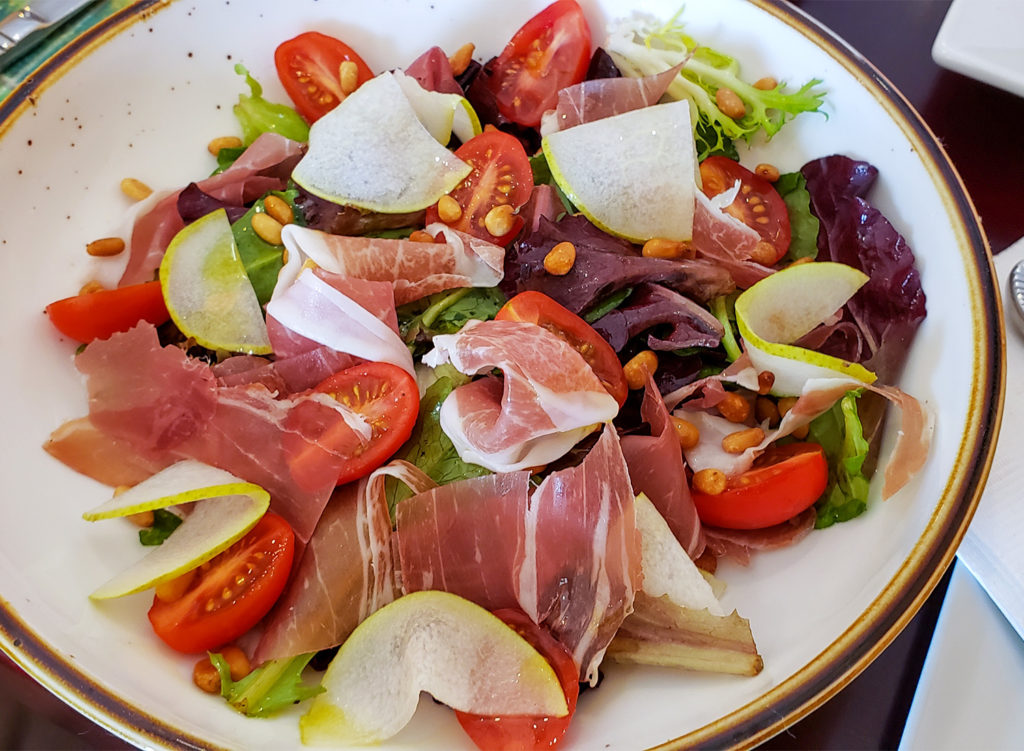For more than seven months, Chef Philippe Colasse has been advertising for kitchen and serving staff at his petite Larkfield restaurant, Creperie Chez Solange. Located in the busy Molsberry Market shopping center off Old Redwood Highway, his restaurant has had precisely zero applicants.
Exhausted by trying to run his French crepe shop alone — doing all of the sourcing, cooking, serving and dishwashing himself — Colasse had decided to close the restaurant permanently on Halloween.
It’s no secret that the pandemic has gutted the hospitality industry. According to restaurateurs, the combination of on-again, off-again restaurant closures, customers surly over mask requirements, night and weekend hours, concerns about health and safety, the lack of health care and the pull of more lucrative job opportunities have occluded the steady stream of workers willing to work for California’s minimum wage of $14 per hour.
To keep staff, larger restaurants are advertising between $18 and $30 per hour with signing bonuses and health care. That’s something small mom-and-pop restaurants like Colasse’s just can’t afford.
“I do believe it’s a question of pay, and other businesses may pay higher, but they all still need people, and they’re not there,” he said.
Instead, Colasse has tried to keep his restaurant afloat single-handedly, offering takeout and later in-restaurant dining.
“I’ve just been doing it all myself, and the workload is too harsh. A restaurant needs three or four people working at minimum,” said Colasse. He said the last employee he had left six months ago to go back to school, something that’s also been a common refrain as workers reassess career opportunities.
Though unemployment is down in Sonoma County, a 2021 report by the county Economic Development Board found that 42% of businesses face hiring difficulties, and 78% had significant concerns about affordable housing and living costs for employees.
“This is the new reality, and I’m not the only one suffering,” he said. When the restaurant opened in early 2020, Colasse said he employed up to seven cooks and servers.
Sadly, the closure isn’t for lack of eager diners. With plenty of locals still trying to order his savory French buckwheat crepes and flaming crepes Suzette, the problem isn’t the lack of clientele, but Colasse’s inability to serve customers in a timely way when he’s alone.
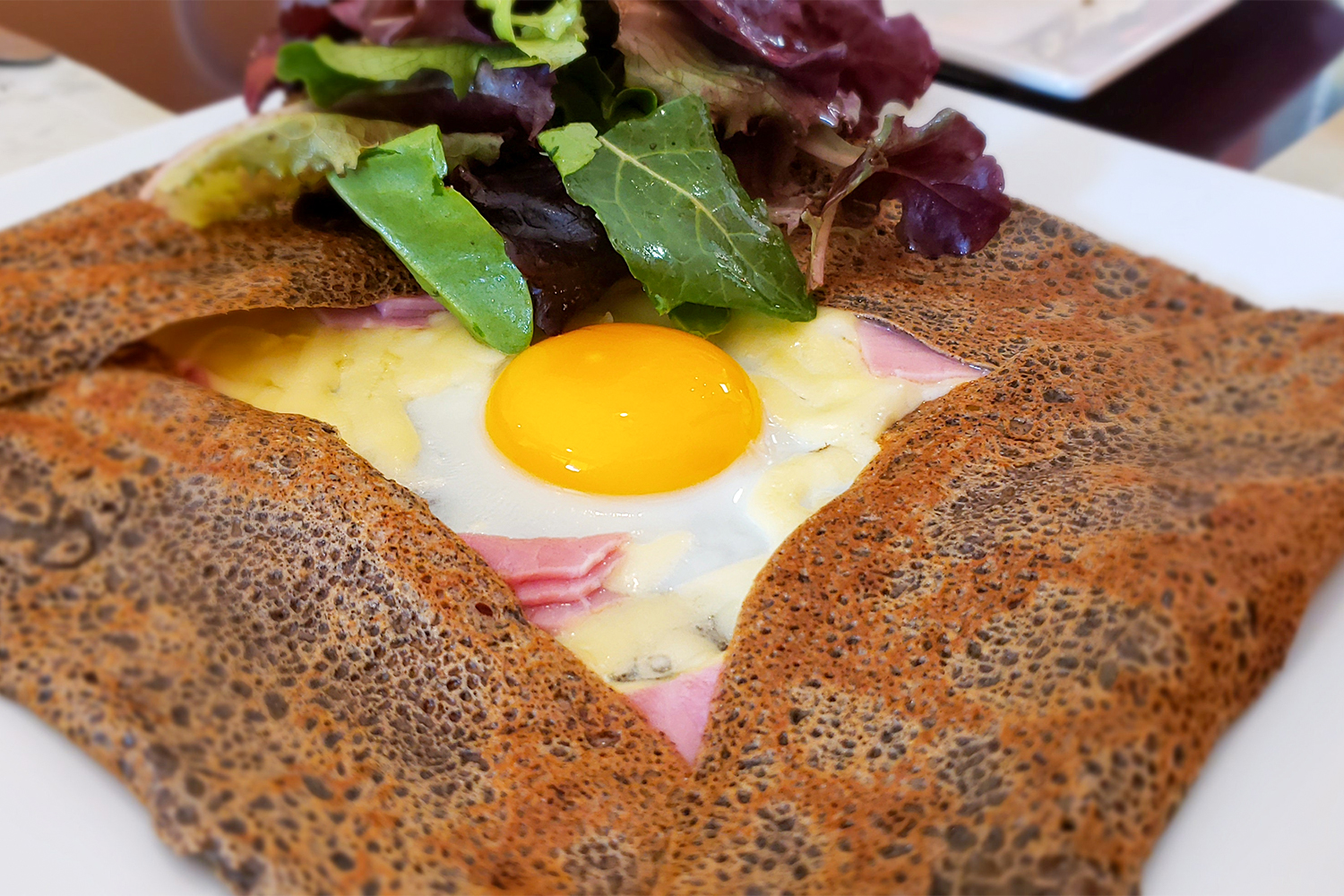
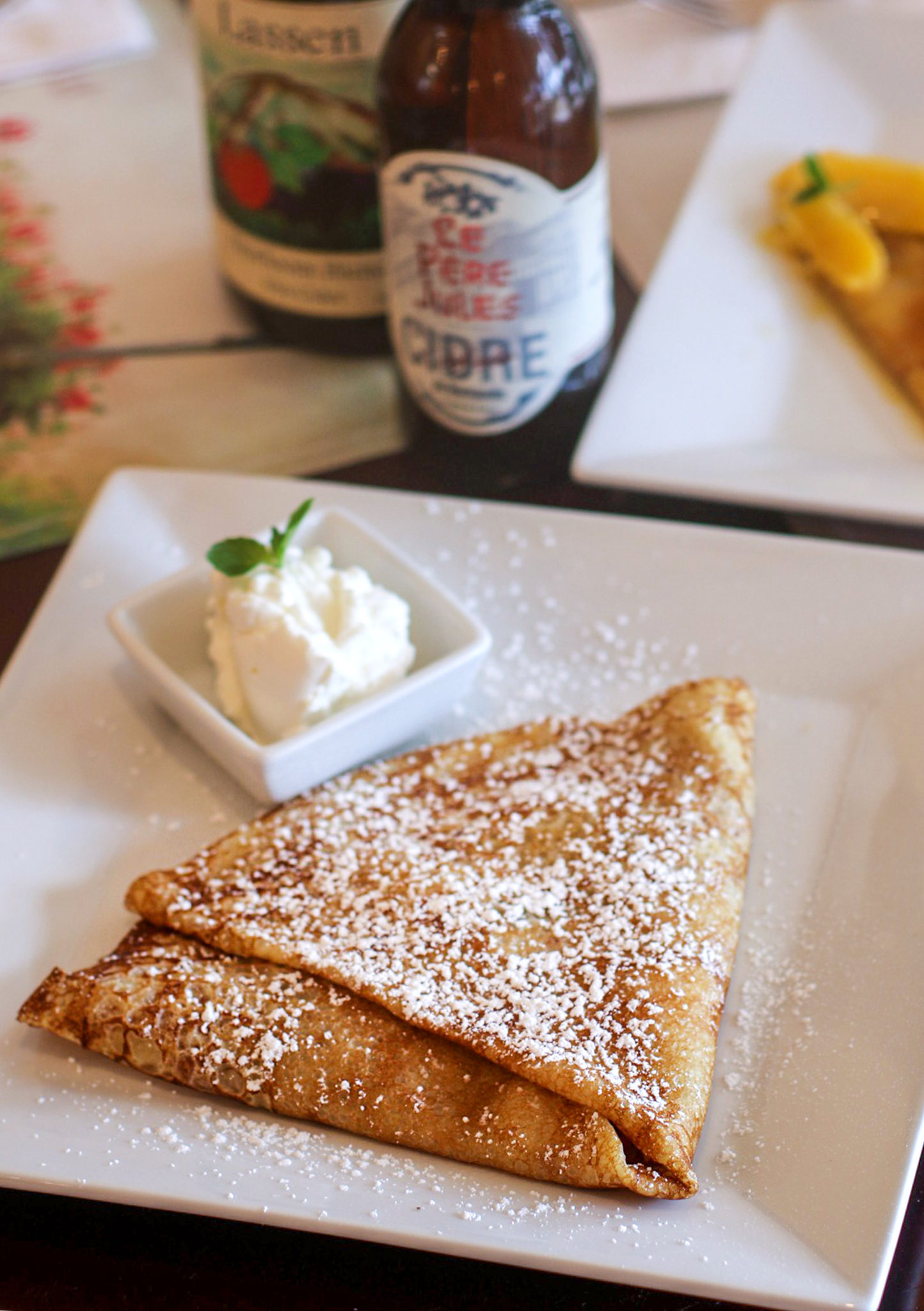
“Business has come back, but we in the food industry are suffering. If I already have two or three orders, I tell people it’s a 30- to 45-minute wait, and they leave,” he said, acknowledging that long wait times are bad for business.
“I’m turning down people who try to order food or try to walk in and eat because it takes too much time to serve them. Most people are in a hurry, and they want to eat now,” he said. He estimates that he turns away at least a dozen people each day, with up to 40 people on busy Saturdays.
Adding to the woes, meat prices have skyrocketed up to 40%, to-go containers are almost impossible to buy at any cost and supply chain issues continue.
“I don’t feel like charging people for something that doesn’t have the value. I see food as a pleasure, not a way of making money, and when I see that I can’t serve at a decent price, it’s time for me to walk away,” Colasse said.
For now, he plans to help a new Vietnamese restaurant open in his space, then reassess what’s next.
“I knew that selling crepes, as close as I could to what you would get in France was a difficult challenge, but I also realized that day after day, people were more appreciative. It’s been a great satisfaction,” he said.





